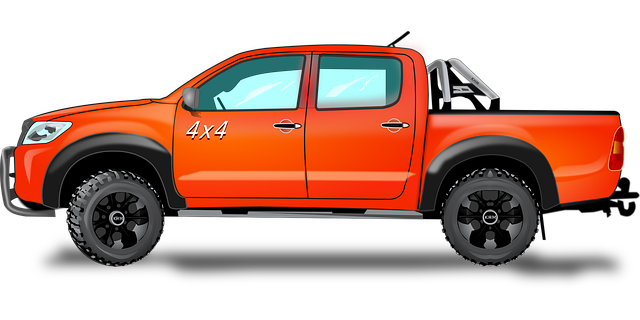ABS sensors, critical components in modern 4×4 vehicles like those with RGV-4×4 accessories, significantly enhance safety and driving experience on rugged terrain. They monitor wheel speed during braking to prevent lockup, reduce skidding risk, and optimize performance on slippery or uneven surfaces. These strategic sensors ensure better control, improved handling, and stability for a safer off-road adventure. Regular maintenance is crucial to address issues like corrosion or faulty readings, with troubleshooting ranging from simple cleaning to specialist consultation. Choosing high-quality ABS sensors designed specifically for RGV-4×4 accessories ensures optimal performance and safety during intense off-road drives.
“ABS (Anti-lock Braking System) sensors play a pivotal role in enhancing the safety of RGV-4×4 vehicles. This article offers an all-encompassing guide, delving into the intricate workings and significance of ABS sensors. We’ll explore their basic functionality, impact on RGV-4×4 performance, and diverse types tailored for specific applications. Furthermore, we’ll dissect common issues, provide troubleshooting insights, and guide readers in selecting the perfect ABS sensors for their RGV-4×4 accessories, ensuring optimal safety and driving experience.”
- Understanding ABS Sensors: A Basic Overview
- The Role of ABS Sensors in RGV-4×4 Vehicles
- Types of ABS Sensors and Their Functions
- How ABS Sensors Contribute to Safety
- Common Issues and Troubleshooting Tips
- Choosing the Right ABS Sensors for Your RGV-4×4 Accessories
Understanding ABS Sensors: A Basic Overview

ABS sensors, or Anti-lock Braking System sensors, are critical components in modern vehicles designed to enhance safety and driving experience, especially on rugged terrain. These sensors play a vital role in 4×4 vehicles, like those equipped with RGV-4×4 accessories, by monitoring wheel speed during braking. In the event of a potential lockup, the ABS sensor quickly adjusts brake pressure to prevent wheels from locking up, allowing for better control and reducing skidding risk.
By continuously measuring each wheel’s rotation, these sensors enable drivers to maintain steering control even on slippery or uneven surfaces. This technology is especially beneficial in off-road conditions where terrain can vary drastically. ABS sensors contribute to improved braking performance, ensuring a smoother and safer driving experience for 4×4 enthusiasts who rely on their vehicles for outdoor adventures.
The Role of ABS Sensors in RGV-4×4 Vehicles

ABS (Anti-lock Braking System) sensors play a critical role in enhancing safety and driving dynamics for RGV-4×4 vehicles, making them essential accessories for off-road enthusiasts. These sensors are strategically placed near each wheel to monitor its rotational speed during braking. By detecting any wheel lockup, the ABS system immediately adjusts brake pressure to prevent skidding, allowing drivers to maintain control even on challenging terrains.
In RGV-4x4s, ABS sensors contribute significantly to better handling and stability. They enable drivers to navigate through muddy trails, rocky paths, or loose surfaces with confidence, knowing that their brakes will perform optimally. This technology is particularly valuable when traversing difficult terrain where wheel lockup can easily occur, ensuring a safer and more enjoyable driving experience for RGV-4×4 owners.
Types of ABS Sensors and Their Functions

ABS (Anti-lock Braking System) sensors are a critical component in modern vehicles, especially for those with 4×4 capabilities. These sensors play a vital role in enhancing braking performance and safety, particularly on rugged terrain where traction can be an issue. There are several types of ABS sensors designed for different applications, each offering unique functionalities. For instance, the wheel speed sensor is a common type found on many vehicles, detecting individual wheel rotation speeds to identify when a wheel is locking up during hard braking. This information is crucial for the ABS system to modulate brake pressure and prevent skidding.
Another essential sensor is the gyroscopic sensor, which measures the vehicle’s roll rate and angular momentum. By monitoring these factors, it assists the ABS in determining if the driver is trying to navigate through challenging off-road conditions or making sudden maneuvers. Additionally, some advanced 4×4 vehicles employ gravity-based sensors that detect vehicle attitude and pitch, further enhancing the ABS’ ability to adapt to diverse driving scenarios. These various types of sensors contribute to the overall effectiveness of RGV-4×4-accessories, ensuring optimal braking control under all conditions.
How ABS Sensors Contribute to Safety

ABS (Anti-lock Braking System) sensors play a pivotal role in enhancing vehicle safety, especially on rugged terrain and off-road adventures. These advanced components are integral to rgv-4×4-accessories, ensuring drivers maintain control during critical braking situations. By continuously monitoring wheel speed, ABS sensors detect when wheels are locking up, preventing skidding and enabling better traction. This technology is crucial for navigating challenging 4×4 trails, where terrain unpredictability demands precise control.
The contribution of ABS sensors to safety extends beyond preventing wheel lockup. They also help drivers maintain steering control under extreme conditions. In situations where brakes might be applied suddenly or heavily, these sensors enable the vehicle’s stability control system to counteract skidding, keeping the 4×4 on course. This feature is invaluable in off-road scenarios, where obstacles and uneven terrain can cause sudden maneuvers.
Common Issues and Troubleshooting Tips

ABS sensors, integral to modern vehicles’ anti-lock braking systems, can encounter issues over time. Common problems include sensor corrosion due to exposure to moisture or road salt, loose connections resulting from vibrations, and faulty readings caused by debris or damage. When ABS lights flicker on your dashboard, it’s crucial to address the problem promptly for enhanced safety.
For troubleshooting, start with a visual inspection to ensure no visible damage or debris around the sensor. Check wiring for any signs of wear, corrosion, or loose connections. Cleanse corroded areas and reattach wires securely. If issues persist, consider consulting an automotive specialist, especially when dealing with rgv-4×4-accessories, ensuring compatibility and optimal performance.
Choosing the Right ABS Sensors for Your RGV-4×4 Accessories

When equipping your RGV-4×4 accessories with ABS sensors, selecting the appropriate ones is paramount for safety and performance. The right ABS sensor ensures precise wheel speed monitoring, enabling your 4×4’s anti-lock braking system to react swiftly in various terrain conditions. Look for sensors designed specifically for off-road vehicles, which often come with enhanced durability and water resistance to withstand rugged environments.
Consider factors like compatibility with your RGV-4×4’s model year and electrical system. High-quality sensors offer better signal accuracy and immunity to interference, ensuring optimal braking performance during intense off-road drives. Additionally, modern ABS sensors may include advanced features like temperature compensation and adaptive algorithms for improved responsiveness on different surfaces.
ABS sensors play a pivotal role in enhancing safety for RGV-4×4 vehicles, ensuring optimal performance and stability. By understanding their functions and choosing the right ones for your RGV-4×4 accessories, you can significantly improve driving dynamics. Whether it’s preventing wheel lock during braking or providing precise control in challenging terrain, these sensors are a game-changer for off-road enthusiasts. When selecting ABS sensors for your RGV-4×4 accessories, consider their quality and compatibility to ensure a seamless and safe driving experience.



